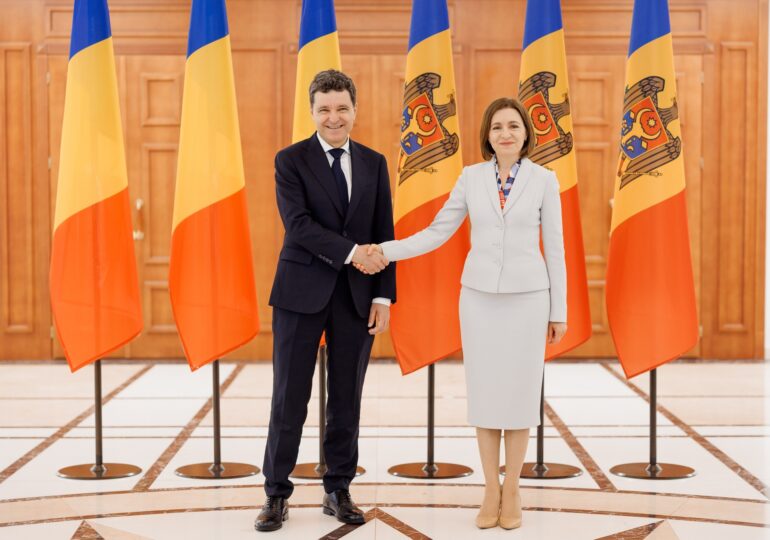Maia Sandu, Donald Trump, and Emmanuel Macron are the international leaders in whom Romanians have the most trust, according to a survey conducted by Avangarde.
On the other hand, the international leader in whom Romanians have the least trust is Russian President Vladimir Putin, as shown in the survey cited by G4Media.
Thus, the international leaders in whom Romanians have the most trust are:
- Maia Sandu – 78%
- Donald Trump – 67%
- Emmanuel Macron – 60%
- Ursula von der Leyen – 56%
- Volodymyr Zelensky – 57%
On the opposite end are:
- Vladimir Putin – 18%
- Viktor Orban – 29%
- Xi Jinping – 33%.
High Trust in NATO and Fear of a Russian Attack
Regarding international institutions, NATO enjoys the highest level of trust: 74%. Following are the European Union with 62%, the UN – 61%, the European Commission and the European Parliament each with 57%, and BRICS with 27%.
Despite Romanians having high trust in NATO and Western leaders, they fear a potential attack from Russia.
47% of those surveyed believe a Russian attack on Romania is possible, while 43% do not.
Regarding the war in Ukraine, 37% believe Romania should not get involved at all, possibly only with humanitarian support, 33% support a greater involvement, and 26% believe Romania is doing enough.
Nicușor Dan's Activity in Foreign Policy
Regarding the activity of President Nicușor Dan in foreign policy, Romanians are rather dissatisfied.
Thus, when asked if they are satisfied with the first months of President Nicușor Dan's tenure in terms of foreign policy, 51% of Romanians said "no." 43% answered "yes," while 6% stated they "cannot assess."
The Ministry of Foreign Affairs is appreciated by 38% of respondents, while 51% are dissatisfied with the institution.
Romania's Best Friends and the Union with Moldova
Romania's best friends are considered to be Moldova (13%), France (11%), and the USA (5%). On the other hand, Russia is the least appreciated (1%), followed by China (2%) and Spain (2%).
Regarding the union of Romania with Moldova, 47% believe it should be achieved, 46% oppose it, and 7% cannot decide.
The survey was conducted by Avangarde, from September 8–14, 2025. Sample size: 1,000 respondents. Method: CATI (telephone interviews)
Margin of error: ±3.4% at a 95% confidence level.

